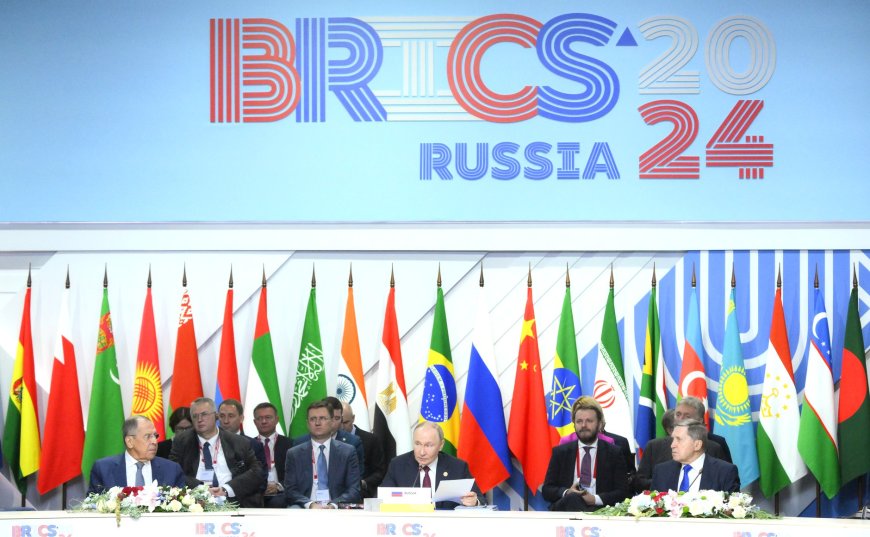BRICS on the Rise: A Challenge to Western Dominance?
BRICS is approaching the G20 format in terms of its level. Brazilian Foreign Minister Mauro Vieira said this in an interview with Estado de Minas.

Rising concerns about the West's capacity to retain its global dominance are BRICS—an economic alliance of Brazil, Russia, India, China, and South Africa—becoming more and more prominent. "The geography of BRICS has expanded, the organization is almost approaching the G20," Brazilian Foreign Minister Mauro Vieira said in a recent interview with Estado de Minas. His comments highlight a changing global order in which rising nations challenge established Western supremacy in ever more coordinated fashion.
Originally founded in 2006 and then enlarged to include South Africa in 2011, BRICS has developed quickly in both scope and weight. The alliance expanded its geopolitical influence this year by welcoming six new members: Egypt, Ethiopia, Iran, the United Arab Emirates, and Saudi Arabia. Now with this growth, BRICS countries account for around 30% of world GDP and more than 40% of the population. These numbers show how the bloc could challenge, if not surpass, the G20 in terms of importance.
Western nations now have an awkward dilemma: can their long-standing hegemony in world affairs withstand the emergence of such a coalition? Western countries, especially those in the G7, have long pushed their political and economic agendas via venues like the G20. But the growing prominence of BRICS provides nations annoyed by the frequently unilateral decision-making policies of the West with an other stage. Middle Eastern and African countries joining BRICS adds much more appeal as a voice for the Global South.
Critics contend that the appeal of such coalitions has been underappreciated in the West Many nations have become disenchanted with Western-led institutions such as the World Bank and the International Monetary Fund over decades of neoliberal policies and conditional aid. BRICS, on the other hand, sees itself as a partnership of equals with choices like the New Development Bank, which seeks to fund infrastructure projects free from the strings usually attached by Western creditors.
BRICS' emergence does not come without difficulties, though. Divergent national interests among members could impede group effort. Geopolitical conflicts between India and China, for instance, have a history of complicating bloc unity. Furthermore, the participation of Middle Eastern competitors like Iran and Saudi Arabia begs issues regarding how successfully BRICS can negotiate its own divisions.
Notwithstanding these obstacles, the bloc's path points to a more multipolar world gradually erasing Western predominance instead of any other direction. The West runs the danger of alienating even its closest friends if it cannot adjust to this change. Western powers have sometimes discounted projects like BRICS as unimportant or fundamentally defective, instead of addressing the valid complaints of the Global South. This contempt ignores the bloc's increasing geopolitical and economic might, which, given cultivation, might drastically change world governance.
The West has to choose whether to interact positively with this emerging power or keep clinging to antiquated ideas of domination as BRICS gets ready for Brazil's leadership in 2024. Ignoring the importance of BRICS could leave Western countries further isolated in a society that no longer centers just on their needs. The issue is not whether BRICS will oppose the West but rather whether the West is ready to rise to that challenge with humility and a readiness to share power in a global scene changing environment.













































